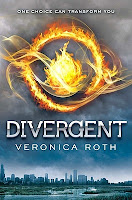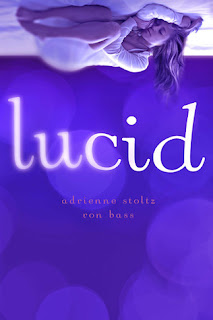You might be interested to check out this guest post at A Backwards Story by Leah Cypess, which may in part have inspired this post of mine. This guest post at The Book Rat by Marissa Meyer and this blog post by Zoë Marriott also take a look at retelling fairy tales. Also, if you'd like a list of YA retellings, Resugo at Resugo's Bookish Paradise is compiling one here.
I usually have the same reaction whenever I see that someone's written a YA retelling of a classic story. First, I go: "Oh, cool! ______ set in high school/the 1950s/China/the future! That's such a creative idea." This is then quickly followed by: "Oh no! A retelling of ______! There are SO MANY THINGS that could go wrong."
This is because, although I appreciate that writers come up with plenty of fresh new spins on classic stories, at heart I am a purist. There is a reason that the book is a classic, after all. So part of me thinks, "Well, if it was done so well the first time that it's on its billionth printing...why do you feel you need to tell it again?"
But then another part of me argues back, "But classic retellings are a great way to introduce kids to classic literature! Then maybe then they'll actually want to pick up Pride & Prejudice/Jane Eyre/Much Ado About Nothing/what-have-you!"
This last point, however, is only true if the retelling is done WELL. If it's done badly, you may have turned the kid off that classic for a long, long time. Which, let's hope, is never the author's intention. (If the classic sucks in the first place, like Wuthering Heights, that's a whole different story. Apologies to any die-hard Wuthering Heights fans out there, but I am Team Jane Eyre all the way.)
| The only way to enjoy Wuthering Heights: through a comic. Check out some other scenes at Hark! A Vagrant. |
In one way, discerning the quality of a classic retelling is just like for any other story. Are the characters well-developed? Does the plot move along at a decent pace? Is there emotional and/or physical tension? If relevant, is the world-building strong? If the answer to all of these questions is a big fat NO, then I'd say not only do you not have a well-written retelling on your hands, but you don't even have a well-written story on your hands. Head on back to the drawing board.
But in another way, a retelling is a whole new can of worms. Because you're not creating something from nothing. You're changing a story that's already been told. You're moving it to a new time period, or a new setting, or altering the characters' ages or ethnicities, or maybe you're even giving it a different ending or interpreting a major event in a fresh way. The change you make has to be significant enough that it makes the retelling its own story. Otherwise, there is no point to it. Readers might as well just pick up the classic.
However, it can't be so different that you can no longer claim it is a retelling. If the only similarity between your story and the original is the characters' names, then no, you haven't written a retelling. You've written a totally different book, so change the names, stop pitching it as a retelling, and let it stand on its own two feet.
 |
| You don't want your retelling to be like the movie adaptation of Ella Enchanted, do you? No. I didn't think so. |
To determine if you've written a retelling that is neither too close nor too far from the original, you might want to ask yourself the following questions:
- If the characters' names were changed to ones not remotely resembling the original names, would the story still be recognizable? Could a reader point to various events or personalities and go, "This is a retelling of The Wizard of Oz/Alice in Wonderland/Tess of the d'Urbervilles!"
- What is the twist that my retelling has? Is it a change in setting, ending, character, plot point?
- If I could pitch the retelling as "Name of original book meets ______," what would it be?
- If I had a chance to sit down with the original author, and I told him/her all about your retelling, what would their response be? Would they approve? Or would they keel over in shock and horror?
 |
| "You added zombies to my novel? I am most SERIOUSLY displeased." |
- What are the themes in my story? (Identifying themes is always a good idea anyway.) What are the themes in the original? How similar are they? Are there any that conflict? I'd say retellings generally should be similar thematically to the original, as that's a major part of what ties the two stories together, despite all the modifications you've made.
- In what ways does my story bring something completely new to the table? Why is this element or aspect important enough to warrant retelling the story?
- Once someone has finished reading my story, will there be any point to them reading the classic? (If not, then you've likely followed the original too closely. There should always be good reason for still reading the classic!)
No matter what the story, books aren't written in a vacuum. Authors, even those who aren't trying to write retellings, are still influenced by other authors' works. Sometimes this is unconscious, sometimes this is conscious. Sometimes it's just happy accident that two authors come up with really similar ideas all on their own.
So if you think about it, if you're writing a retelling, you've got an edge. The story you're doing over has already been written, read, and is likely well-known. (In many cases the author's dead, too.) You know your book is going to be influenced by another. And what you get to do is take the best aspects of the classic, and the best part of your own imagination — and build something new on a tried-and-true foundation.





























